Today’s readings
Whenever I start to hear this Gospel reading, I usually think, “Oh yeah, I know this one, about the Prodigal Son…” and then the story unfolds and that’s not it at all. But reflecting on the story, there are certainly similarities. The prodigal son certainly wasn’t wanting to do his father’s will. He ran off on his own and, when things turned sour, he realize the grave error of his ways and returned home. The other son in that story stayed and did the father’s work, but when he was invited in to the celebration, he objected and turned away. Which one of them did the father’s will?
It’s not a perfect parallel and so the metaphor doesn’t really quite work, but you get the idea. Both of these stories are about repentance, both of them are about God’s mercy, and both of them challenge the religious establishment of the time because they were not doing the Father’s will.
As we get to these late summer-early fall Liturgies of the Word, you might have noticed that there is a strong theme of God’s mercy, which invites repentance. Three weeks ago, we heard about the concept of fraternal correction: if your brother sins, go to him, then if he doesn’t repent bring a few witnesses, and if that doesn’t work go to the church, and if that doesn’t work, well treat him as a Gentile or a tax collector. I made the point that week that Jesus treated Gentiles and tax collectors with mercy and love, so again, we are talking about mercy.
The following week found Saint Peter trying to establish the rule on forgiveness. How many times must I forgive my brother when he sins against me? He thought seven times was pretty generous. But Jesus took it a magnitude greater: not seven times, but seventy-seven times: in a word, forgive your brother all the time. We disciples are called to great mercy.
Then last week, we had the parable of the day laborers, with those who worked just an hour getting paid as much as those who worked the whole day long. The point was that God treats everyone the same: at whatever hour of one’s life a sinner returns to God, that sinner will find mercy, same as everyone else.
So here we are, with the sons called to go out into the vineyard to work. One of them flat out says forget it, I have better things to do, but then later repents of his sloth and the horrible way he treated his father and went instead. The other son who was eager to say he’d go, later found the prospect of work a little more than he could bear so he didn’t go at all. Jesus parallels this story to, once again, tax collectors and prostitutes. These horrible sinners are seeing the light and even though they rejected the message early on in their lives, they responded to God’s call, through Saint John the Baptist, and repented. But the religious leaders did no such thing. Despite their equal need for mercy, they refused it, and called to repentance just like the tax collectors and prostitutes, they continued on their merry way to perdition.
But we can’t be like them. We disciples have heard the Word of God and we know better. We have at our disposal many tools of grace: the Sacrament of Penance, the Holy Eucharist, counsel of the Church, and so much more. We have to see our own need for mercy and respond. What’s important for us to see here is this: God extends his mercy and forgiveness and grace and calling to us all the time. We may respond, I think, in one of four ways. First, we may say no, and never change, never become what God created us to be. This happens all the time because we as a people tend to love our sins and love our comfort more than we love God. We often think we can fix ourselves on our own, without need of God’s mercy. Or we may even think that our lives are not important enough for God to be bothered with helping us, or that our sins are so big that there’s no way he’d want to. And sometimes, we just plain would rather not be inconvenienced or challenged to grow.
A second response: we might also say no, but later be converted. That’s a little better. Let’s be clear: there is no time like the present, and we never know if we have tomorrow. But God’s grace doesn’t stop working on us until the very end. So we can have hope because God does not give up on us. That was what the first son did in today’s Gospel reading. That was somewhat like the action of the Prodigal Son as well. Mercy and grace work on us all the time, and when we respond, it’s effective.
In a third response, we might say yes, with all good intentions of following God, being in relationship with him, and doing what he asks of us. But perhaps we get distracted by life, by work, by our sins, by relationships that are impure, or whatever. And then we never actually become what we’re supposed to be. Maybe that was what happened with the second son in today’s reading.
Or, finally, we might actually say yes and actually do it, with God’s grace. We might be people who are always open to grace and work on our relationship with God. Then that grace can lead to a life of having become what God wanted of us. When we say yes, whether it’s right away or after a change of heart like in today’s Gospel, the grace of that moemtn puts us on the path to sainthood, which is where we are all supposed to be. The model for that, of course, would be the Blessed Virgin Mary, who was able to say “yes” to God’s plan for her and the world right away. Saying “yes” to God might seem remote, particularly if you are struggling with habitual sin or addiction, but mercy holds the door open to sainthood all the time. We just have to answer the door.
Today’s Gospel is a good occasion for a deep examination of conscience. Where are we on the spectrum? Have we nurtured our relationship with God and said yes to his call, or are we somewhere else? And if we’re somewhere else, what is it that we love more than God? What do we have to do to get us on the right path? We know the way of righteousness. We know the path to heaven. We just have to make up our minds and change our hearts so that we might follow Jesus Christ, our way to eternal life.

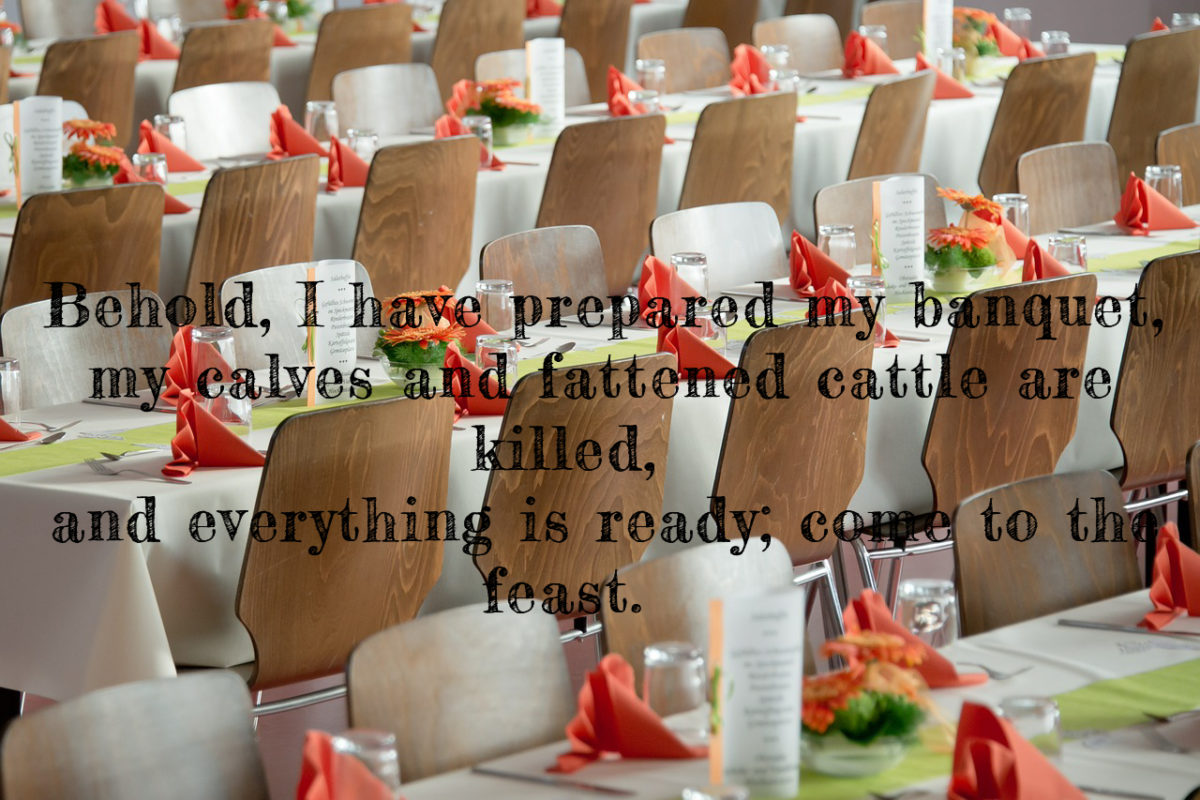


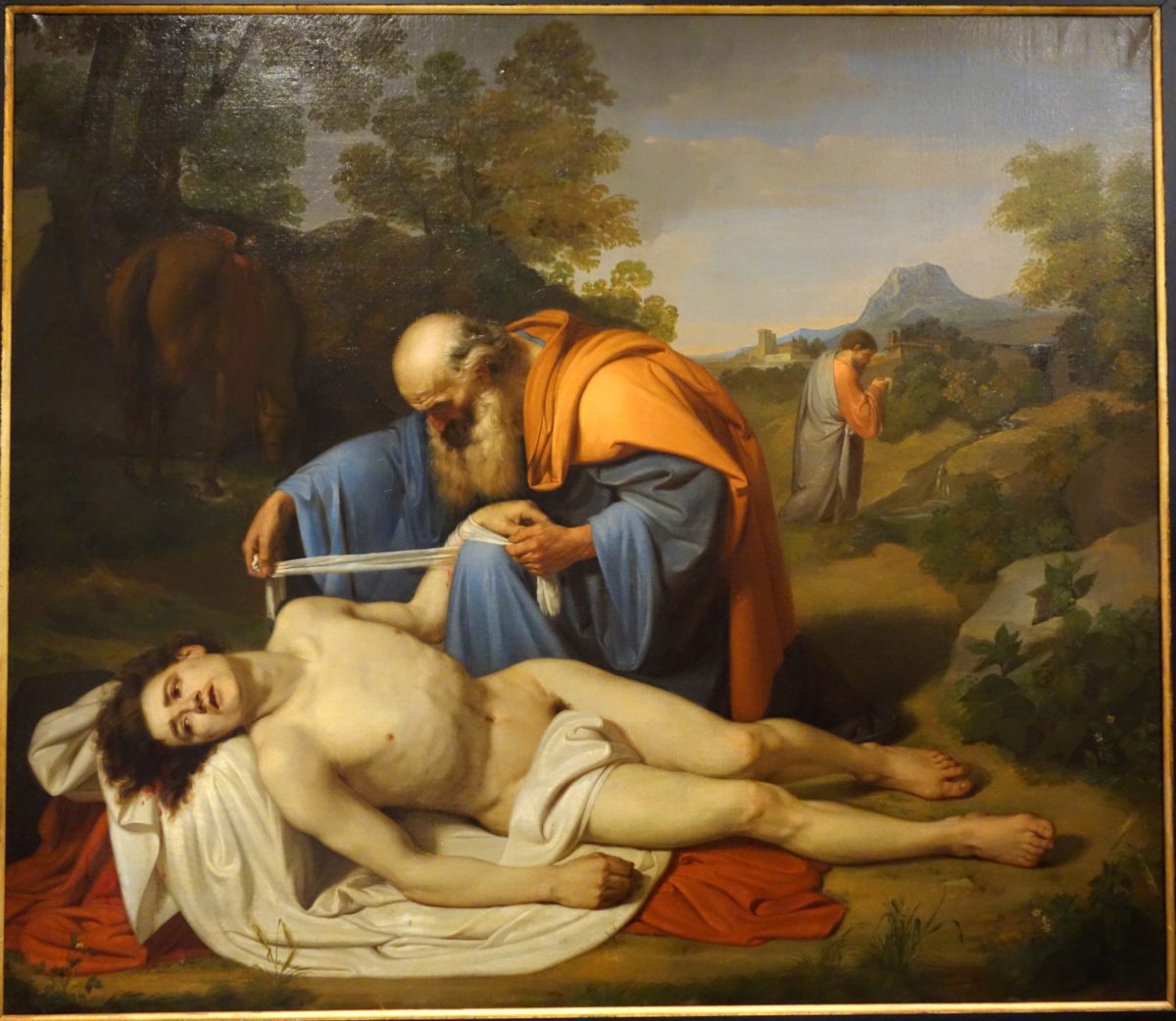

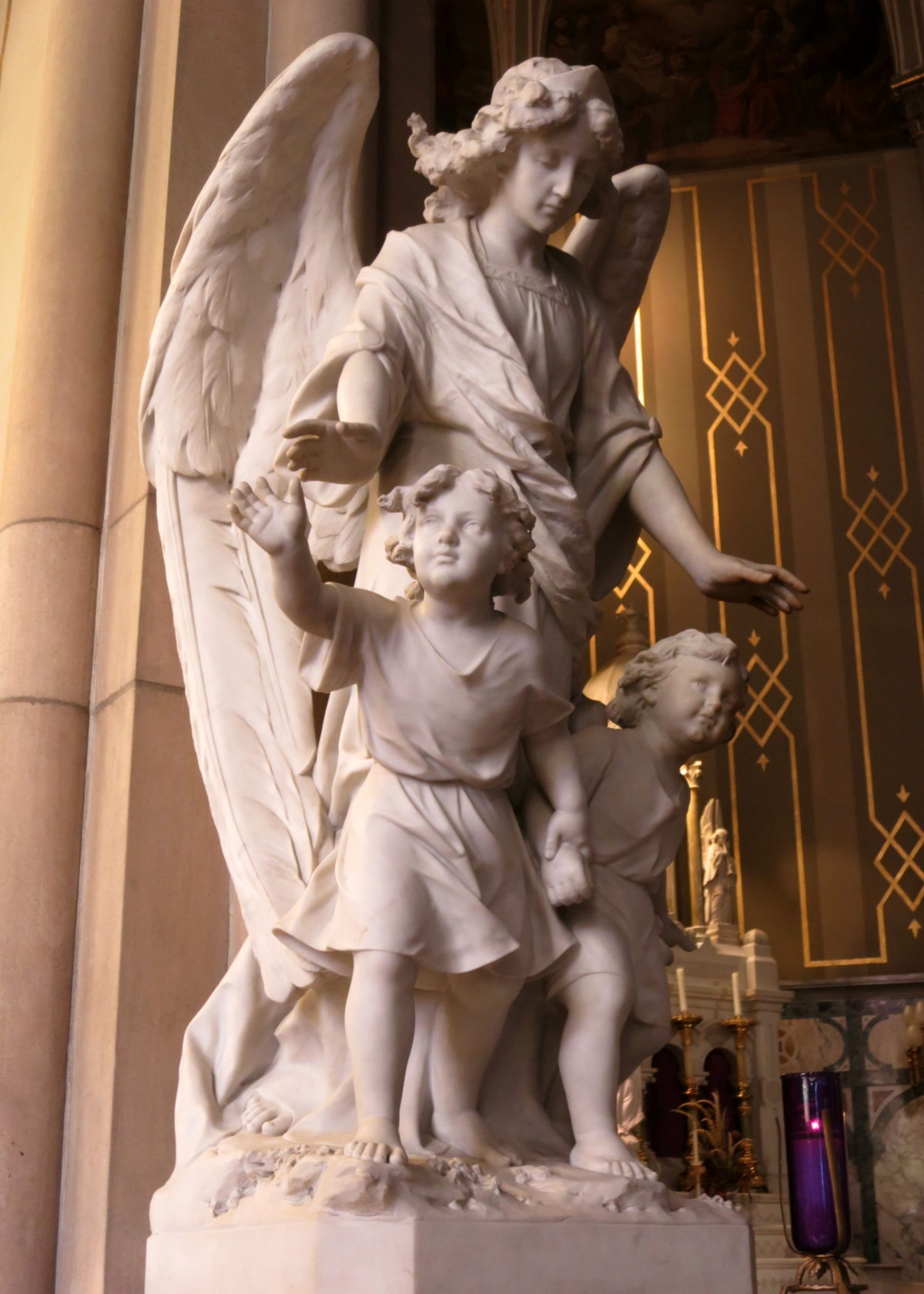

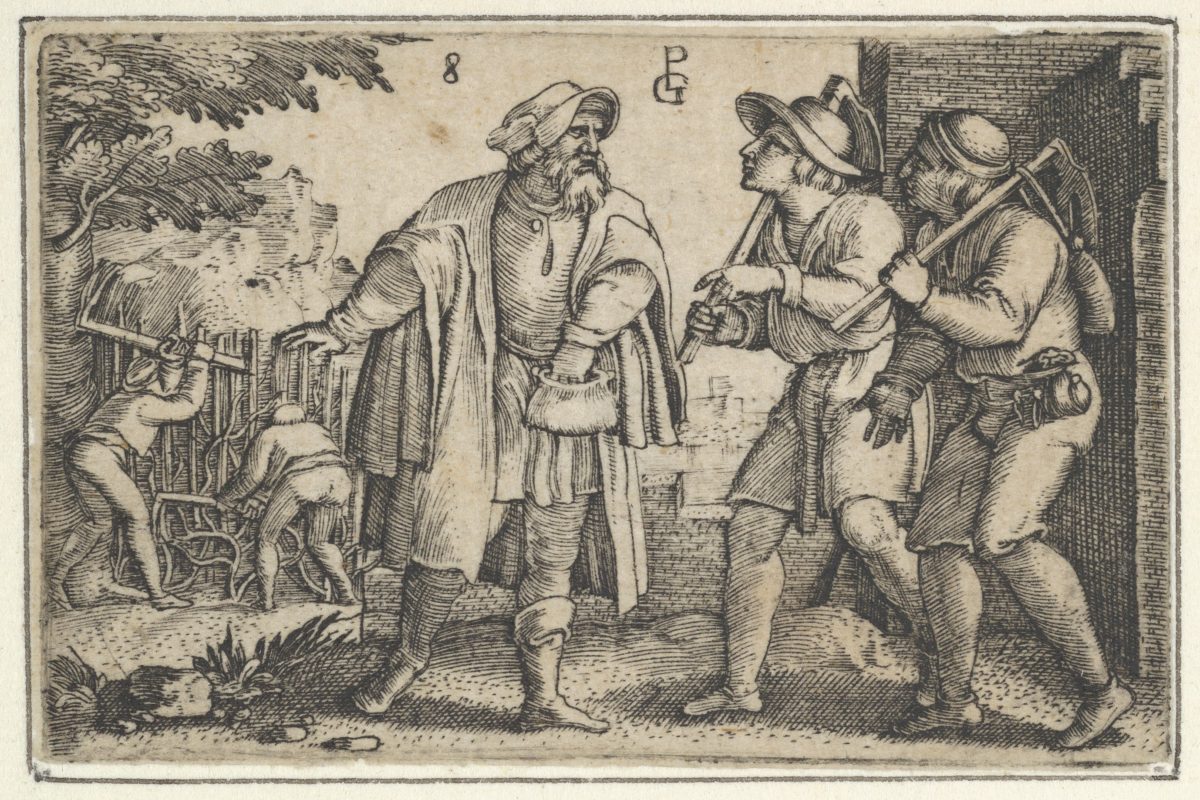
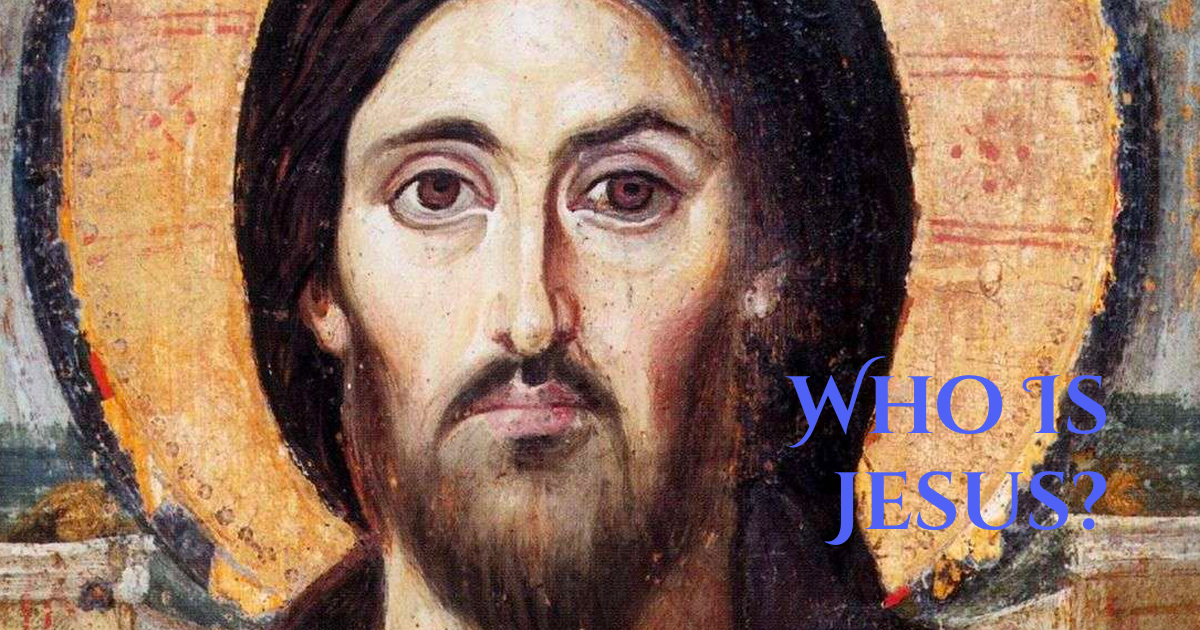
You must be logged in to post a comment.